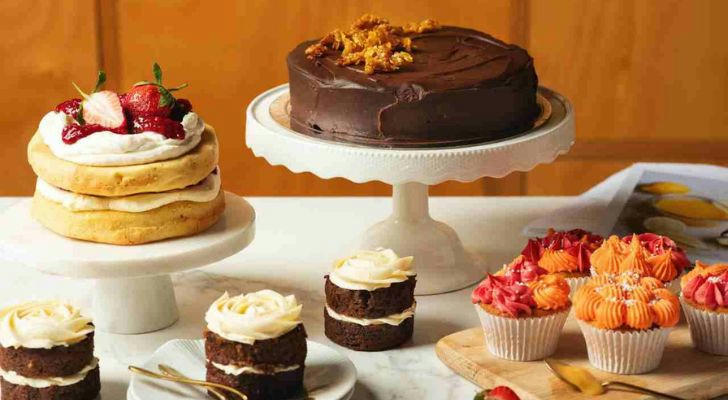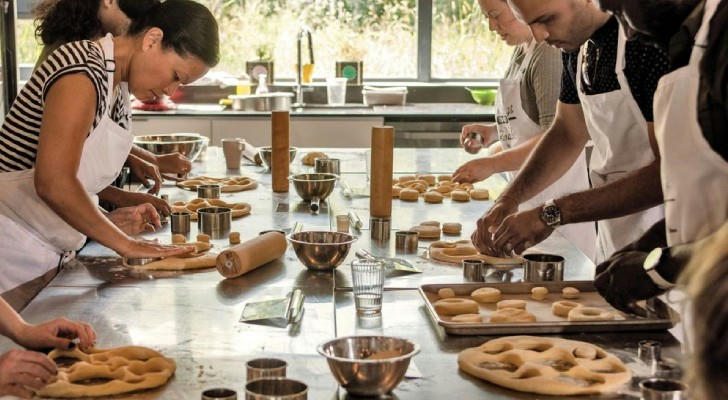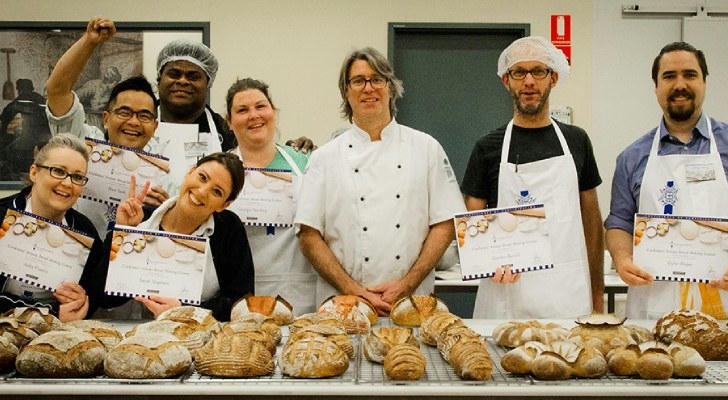The Rise of Baking Courses: Unlocking Career Opportunities and Skill Mastery in the Baking Industry
Baking has transformed from a simple home activity to a thriving professional industry. With the rise of artisanal bakeries, gourmet desserts, and health-conscious baked goods, baking courses have become a popular choice for individuals looking to turn their passion into a career. This article explores the scope of baking courses, their applications, employment prospects, and includes sample test questions to help students achieve a score of 85 points or above.

Scope of Baking Courses
Baking courses are designed to cater to a wide audience, from beginners to advanced bakers. They cover a variety of topics, including:
Basic Techniques: Measuring ingredients, mixing, and baking fundamentals.
Specialized Skills: Bread-making, cake decorating, pastry arts, and chocolate work.
Advanced Methods: Sugar art, plated desserts, and molecular gastronomy.
Dietary Adaptations: Gluten-free, vegan, and low-sugar baking.
Business and Management: Costing, inventory management, and bakery operations.
These courses are offered at different levels, from short workshops to comprehensive diploma programs, making them accessible to hobbyists and aspiring professionals alike.

Applications of Baking Skills
The skills learned in baking courses have a wide range of applications:
Professional Bakeries: Work in bakeries, patisseries, or confectionery shops.
Hotels and Restaurants: Create desserts and baked goods for high-end establishments.
Entrepreneurship: Start your own bakery, cake shop, or home-based business.
Catering and Events: Specialize in custom cakes and desserts for weddings, parties, and corporate events.
Food Industry: Develop new products or ensure quality control in food manufacturing.
Teaching and Workshops: Share your expertise by becoming a baking instructor.
Employment Prospects
The baking industry offers excellent career opportunities due to the growing demand for artisanal and specialty baked goods. Key roles include:
Pastry Chef: Create desserts and pastries in restaurants or hotels.
Bakery Manager: Oversee operations, staff, and inventory in a bakery.
Cake Decorator: Design and decorate custom cakes for special occasions.
Food Stylist: Work in media or advertising to create visually appealing baked goods.
Consultant: Provide expertise to new bakeries or food businesses.
The global bakery market is projected to grow significantly, driven by consumer demand for high-quality, innovative products. This growth ensures a steady demand for skilled bakers.
Sample Test Questions for Baking Courses
To achieve a score of 85 points or above, students must demonstrate both theoretical knowledge and practical skills. Here are sample test questions:
Theory Questions (30 points)
Explain the role of yeast in bread-making and how it affects the final product. (5 points)
What is the difference between baking powder and baking soda? (5 points)
How does ingredient temperature impact the outcome of a cake batter? (5 points)
Describe the process of tempering chocolate and why it is important. (5 points)
What are the key factors to consider when scaling a recipe up or down? (5 points)
Discuss the importance of gluten in baking and how it affects texture. (5 points)
Practical Questions (50 points)
Knead and bake a loaf of bread, ensuring proper texture and rise. (10 points)
Prepare a batch of macarons, focusing on consistency and piping technique. (10 points)
Decorate a cake using buttercream frosting and fondant, demonstrating creativity and precision. (10 points)
Create laminated dough for croissants, showing proper folding and layering. (10 points)
Bake a gluten-free cake and explain the ingredient substitutions used. (10 points)
Business and Management Questions (20 points)
Calculate the cost of producing a batch of 50 cupcakes, including ingredients and labor. (10 points)
Develop a marketing strategy to attract customers to a new bakery. (5 points)
Outline the steps to ensure food safety and hygiene in a bakery. (5 points)
Scoring and Achieving 85 Points or Above
To achieve a score of 85 points or above, students should:
Master the Basics: Ensure a strong understanding of baking fundamentals.
Practice Regularly: Hone practical skills through consistent practice.
Focus on Presentation: Pay attention to the visual appeal of baked goods.
Understand the Business Side: Learn costing, marketing, and management skills.
Stay Updated: Keep up with industry trends and innovations.

Baking courses offer a unique blend of creativity, technical skill, and business knowledge, making them an excellent choice for anyone passionate about baking. With a wide scope of application and promising employment prospects, these courses provide the foundation for a successful career in the food industry. By mastering both theoretical and practical aspects, students can achieve a score of 85 points or above and unlock exciting opportunities in the world of baking.
So, preheat your oven, grab your apron, and embark on a delicious journey toward a rewarding career!
By enrolling in a baking course, you not only learn the art of baking but also gain the confidence to innovate and excel in this ever-growing industry.
